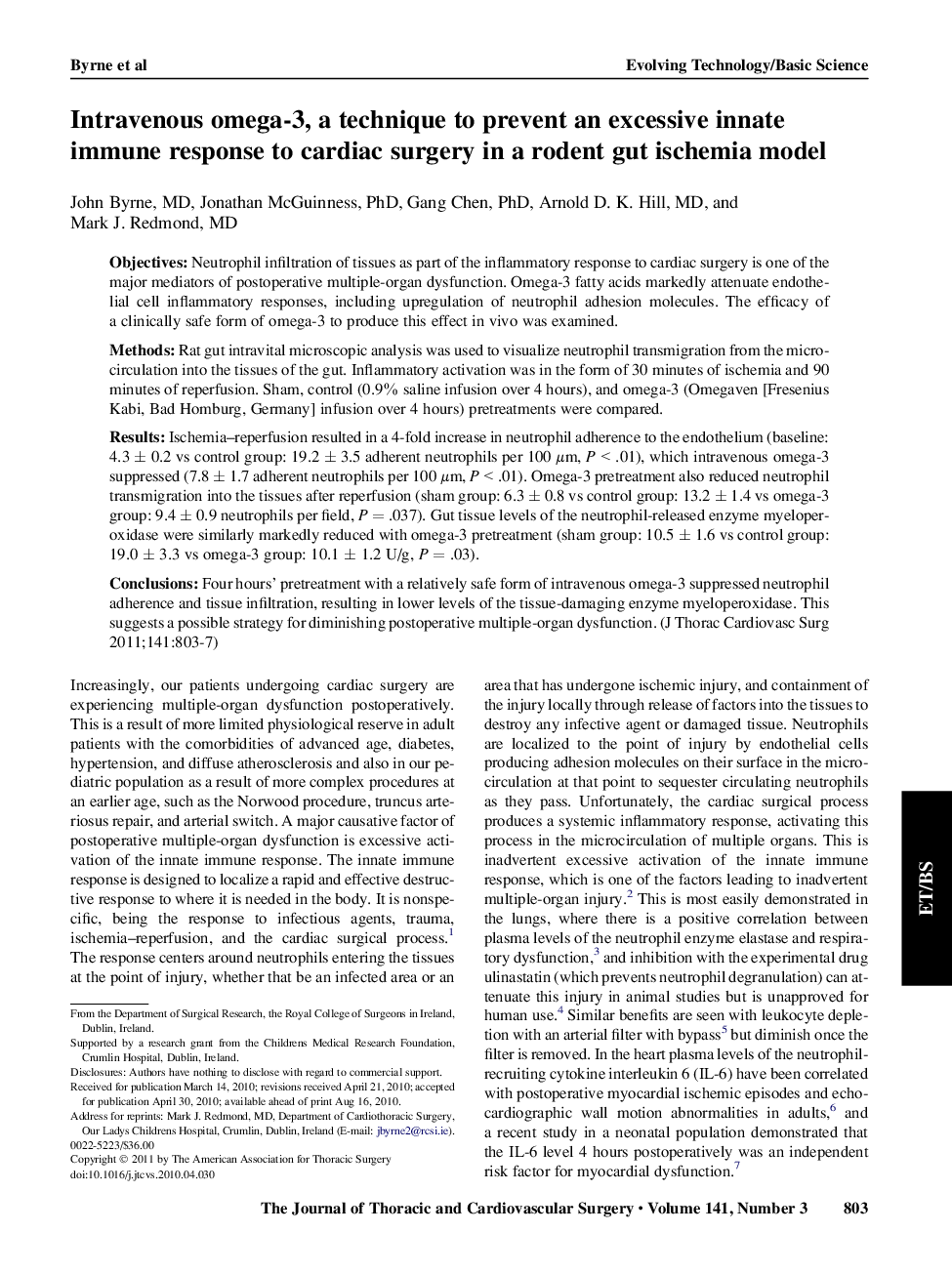| Article ID | Journal | Published Year | Pages | File Type |
|---|---|---|---|---|
| 2981637 | The Journal of Thoracic and Cardiovascular Surgery | 2011 | 5 Pages |
ObjectivesNeutrophil infiltration of tissues as part of the inflammatory response to cardiac surgery is one of the major mediators of postoperative multiple-organ dysfunction. Omega-3 fatty acids markedly attenuate endothelial cell inflammatory responses, including upregulation of neutrophil adhesion molecules. The efficacy of a clinically safe form of omega-3 to produce this effect in vivo was examined.MethodsRat gut intravital microscopic analysis was used to visualize neutrophil transmigration from the microcirculation into the tissues of the gut. Inflammatory activation was in the form of 30 minutes of ischemia and 90 minutes of reperfusion. Sham, control (0.9% saline infusion over 4 hours), and omega-3 (Omegaven [Fresenius Kabi, Bad Homburg, Germany] infusion over 4 hours) pretreatments were compared.ResultsIschemia–reperfusion resulted in a 4-fold increase in neutrophil adherence to the endothelium (baseline: 4.3 ± 0.2 vs control group: 19.2 ± 3.5 adherent neutrophils per 100 μm, P < .01), which intravenous omega-3 suppressed (7.8 ± 1.7 adherent neutrophils per 100 μm, P < .01). Omega-3 pretreatment also reduced neutrophil transmigration into the tissues after reperfusion (sham group: 6.3 ± 0.8 vs control group: 13.2 ± 1.4 vs omega-3 group: 9.4 ± 0.9 neutrophils per field, P = .037). Gut tissue levels of the neutrophil-released enzyme myeloperoxidase were similarly markedly reduced with omega-3 pretreatment (sham group: 10.5 ± 1.6 vs control group: 19.0 ± 3.3 vs omega-3 group: 10.1 ± 1.2 U/g, P = .03).ConclusionsFour hours' pretreatment with a relatively safe form of intravenous omega-3 suppressed neutrophil adherence and tissue infiltration, resulting in lower levels of the tissue-damaging enzyme myeloperoxidase. This suggests a possible strategy for diminishing postoperative multiple-organ dysfunction.
